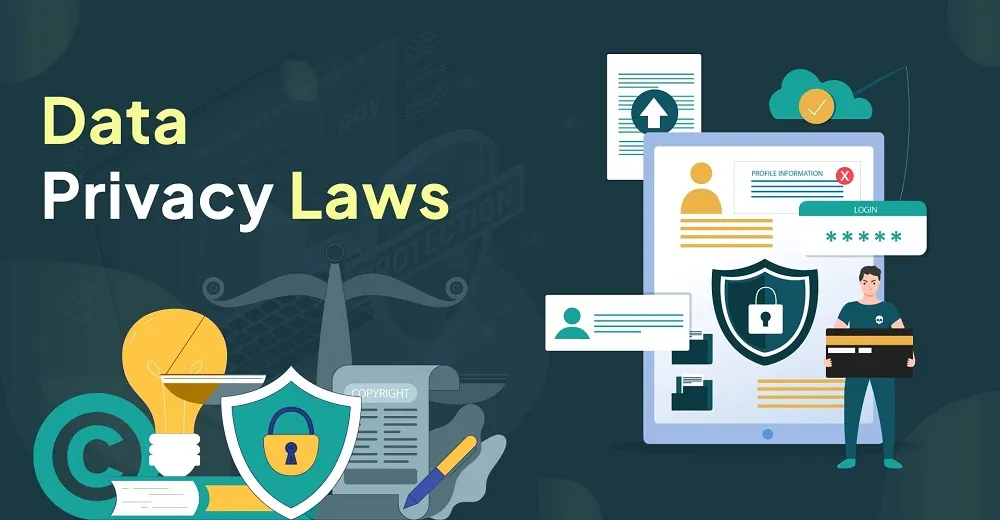
In today’s interconnected digital landscape, understanding privacy laws has become more crucial than ever. With the rise of online transactions, social media interactions, and cloud-based data storage, the safeguarding of personal data is now a pressing concern for individuals and businesses alike. Privacy laws, which are designed to protect individuals’ personal information from misuse, are evolving rapidly across the globe. Whether you’re an individual looking to secure your personal data or a business managing client information, understanding these laws is vital to ensure compliance and protect privacy.
What Are Privacy Laws?
Privacy laws are regulations and legal frameworks designed to protect individuals’ personal information and to control how that information is collected, used, and shared by organizations. These laws aim to prevent data breaches, identity theft, and unauthorized access, ensuring that personal data is handled responsibly. While privacy laws vary by country, they share common objectives of granting individuals control over their own data and holding organizations accountable for data protection.The Global Landscape of Privacy Laws
Privacy laws are not one-size-fits-all; they differ across regions, reflecting cultural, legal, and economic differences. Some of the most notable privacy regulations include:General Data Protection Regulation (GDPR)
The European Union’s General Data Protection Regulation (GDPR) is one of the most robust and influential privacy laws globally. Enforced since May 2018, the GDPR applies to all organizations that process the personal data of individuals in the EU, regardless of the organization’s location. The regulation mandates that organizations must obtain explicit consent from individuals before collecting their personal data, ensure that data is kept secure, and allow individuals to request access, correction, or deletion of their data.California Consumer Privacy Act (CCPA)
The CCPA is a privacy law that grants residents of California, USA, greater control over their personal data. It requires businesses to disclose the types of personal information they collect, allow consumers to opt out of the sale of their data, and provide access to the data they have collected. The CCPA was implemented in 2020 and serves as a model for other states and regions considering their own privacy laws.Other Privacy Regulations Around the World
Beyond the EU and the United States, several other countries have introduced privacy laws tailored to their legal systems. For example, Canada’s Personal Information Protection and Electronic Documents Act (PIPEDA), Australia’s Privacy Act 1988, and Brazil’s General Data Protection Law (LGPD) all reflect global shifts toward enhanced data protection measures. These regulations often share core principles, including transparency, accountability, and security.Why Privacy Laws Matter
Understanding privacy laws is essential for several reasons. First and foremost, these laws are designed to protect individuals from the risks of data misuse, including identity theft, financial fraud, and unauthorized surveillance. The increasing amount of personal information shared online—whether through social media platforms, e-commerce websites, or healthcare providers—has made it easier for bad actors to exploit this data. For businesses, compliance with privacy laws is crucial to avoid hefty fines and reputational damage. Non-compliance with regulations like GDPR or CCPA can result in severe penalties, which may reach millions of dollars. Furthermore, businesses that fail to protect customer data risk losing consumer trust, which can have long-term effects on brand reputation and market standing.How to Safeguard Personal Data
In light of the ever-evolving landscape of privacy laws, individuals and businesses must take proactive steps to safeguard personal data. Below are key practices that can help enhance privacy protection:1. Use Strong Passwords and Multi-Factor Authentication (MFA)
One of the most straightforward ways to protect your online accounts is by using strong, unique passwords. Avoid using easily guessable passwords, such as “12345” or your birthdate. Additionally, enable multi-factor authentication (MFA) wherever possible. MFA adds an extra layer of security by requiring two or more forms of identification before granting access to an account.2. Be Cautious About Sharing Personal Information
In the digital age, it’s tempting to overshare personal information on social media or other online platforms. However, it’s important to think twice before posting sensitive data such as your home address, phone number, or financial details. Always review privacy settings on social media platforms to control who can view your information.3. Encrypt Your Data
Encryption is a powerful tool for protecting sensitive data from unauthorized access. Encrypting data ensures that even if it is intercepted, it cannot be read without the correct decryption key. Individuals can encrypt their personal devices and communications, while businesses should implement encryption for customer data both at rest (stored data) and in transit (data being transferred).4. Know Your Rights Under Privacy Laws
As individuals, it’s important to be aware of your rights under relevant privacy laws. For instance, under GDPR, you have the right to access, rectify, and delete your personal data. Similarly, the CCPA allows you to request information about the data a business collects about you, and opt out of the sale of that data. By understanding your rights, you can take action to protect your data and hold organizations accountable.5. Implement Strong Data Protection Measures as a Business
Businesses must go beyond compliance with privacy laws and ensure robust data protection practices. This includes securing physical and digital data storage, conducting regular security audits, and ensuring employees are trained in data protection best practices. Data should only be collected and stored when necessary, and should be anonymized when possible.6. Regularly Monitor Your Online Presence
Monitoring your digital footprint is essential for safeguarding privacy. You can regularly check if your data has been exposed in breaches using services that track compromised accounts. Additionally, it’s important to be vigilant about phishing scams and fraudulent activities online.Conclusion
As the world becomes more interconnected, understanding privacy laws is no longer optional—it’s a necessity. From individuals who wish to protect their personal information to businesses that must comply with evolving regulations, safeguarding data has become a key priority. By following best practices for data protection and staying informed about privacy laws, we can navigate the digital landscape with greater confidence and security. Understanding and adhering to these laws helps mitigate risks, build trust, and create a safer online environment for all.Read More latest Posts
- Rika JJK Analysis: Who She Was and Why She Still Haunts Yuta
- Rhaenyra Targaryen Explained: Her Rise, Fall, and Legacy Told
- Revan Explained: KOTOR’s Jedi Turned Sith Hero’s Full Timeline
- Rena Monrovia Quote Origin: Real Person or Internet Invention?
- Remus Lupin Character Arc: A Werewolf’s Life of Quiet Tragedy






